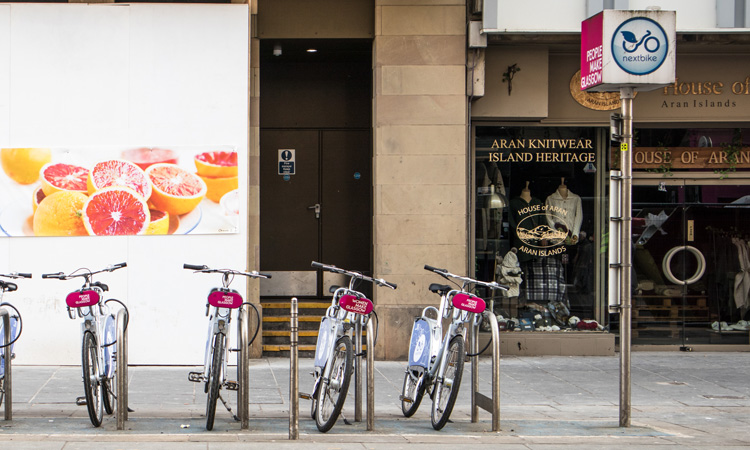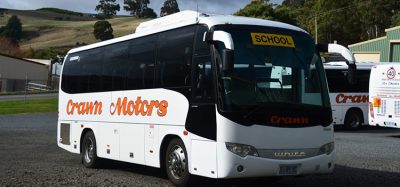Scotland’s two largest cities to benefit from free bike-share services
- Like
- Digg
- Del
- Tumblr
- VKontakte
- Buffer
- Love This
- Odnoklassniki
- Meneame
- Blogger
- Amazon
- Yahoo Mail
- Gmail
- AOL
- Newsvine
- HackerNews
- Evernote
- MySpace
- Mail.ru
- Viadeo
- Line
- Comments
- Yummly
- SMS
- Viber
- Telegram
- Subscribe
- Skype
- Facebook Messenger
- Kakao
- LiveJournal
- Yammer
- Edgar
- Fintel
- Mix
- Instapaper
- Copy Link
Posted: 29 June 2020 | Intelligent Transport | No comments yet
Temporary free access to bike-share services in Glasgow and Edinburgh has been put in place as COVID-19 lockdown measures ease.


Free bike-share services will be provided in Edinburgh and Glasgow 29 June to encourage people to consider cycling for everyday journeys.
Through Scottish Government funding, the bike-share initiative comes into effect as more COVID-19 restrictions are lifted, easing pressure on public transport and helping those who don’t own a bike or have anywhere to store one. More than 1,300 cycles located at nearly 200 bike stations will be available for free hire in the cities for the first 30-minutes of every journey.
Bikes can play an increasingly important role in Scotland’s green recovery by providing an alternative to private car journeys, helping manage demand on public transport, as well as benefiting health and the environment.
In Glasgow, the first 30 minutes of standard cycle hire will come at no cost to the hirer for the next eight weeks, and this will be extended to 60 minutes for existing subscribers – with no limit on the number of times the offer can be used.
In Edinburgh, the first 30 minutes of bike hire on pedal bikes will be free for the next 14 days. The usual per-minute charge is 10p. Access fees for e-bikes will also be free, although usage will incur the usual per-minute charge. Edinburgh also plans to release a new four-month discounted pass from 13 July to encourage long-term uptake of cycling.
The collaboration is being led by the charity CoMoUK which promotes the use of shared transport, and is funded by Transport Scotland through the Smarter Choices, Smarter Places programme managed by the charity Paths for All.
The scheme is in partnership with Glasgow City Council, Transport for Edinburgh, and bike share operators nextbike in Glasgow and Serco in Edinburgh.
Glasgow’s cycle hire scheme was launched in 2014, with nextbike currently providing 800 bikes for hire across 79 city locations. In Edinburgh, over 500 ‘Just Eat’ bikes are available for hire, with 107 stations throughout the city
Both cities have created more cycle lane space in response to the coronavirus pandemic through Scottish Government funding, and bike share operators are undertaking enhanced cleaning regimes, regularly cleaning handlebars and keypads. The free trips will be available to anyone, for any type of journey, and can be used for exercise, shopping and commuting to work. Bikes can be hired on a ‘pay as you go’ basis or by subscription, with registration via app or website.
The move comes as the Scottish government begins the next step in Phase 2 of its COVID-19 route map, with indoor non-office workplaces and street-access retail resuming once relevant guidance is implemented.
As more lockdown restrictions are eased, analysis shows that up to 55 per cent of employees could be travelling to their normal workplace, a rise from 30 per cent in full lockdown. That could result in an increase in the number of passengers on public transport by around by a third from current levels of 225,000 per day.
Transport Scotland continues to ask people to stay local where possible and to walk, wheel or cycle in order to manage demand on the public transport network and to protect our environment.
Cabinet Secretary for Transport, Infrastructure and Connectivity, Michael Matheson, said: “I’m pleased we can offer free access to bikes in Glasgow and Edinburgh through our support of the Smarter Choices Smarter Places programme. We’ve seen increased rates of cycling and increased use of our public hire bicycle schemes across the lockdown period and this offer will help maintain this shift in travel behaviour at a critical time in our COVID-19 response.
“By offering free 30-minute trips, in conjunction with temporary infrastructure in Glasgow and Edinburgh, we can greatly incentivise more sustainable everyday journeys in Phases 2 and 3 of the Scottish Government route map. For people in our two biggest cities, this initiative will benefit our health, our environment and will help to manage demand on our public transport network.”
Related topics
COVID-19, Mobility Services
Related modes
Bikes & Scooters
Related organisations
Transport Scotland
Related people
Michael Matheson








